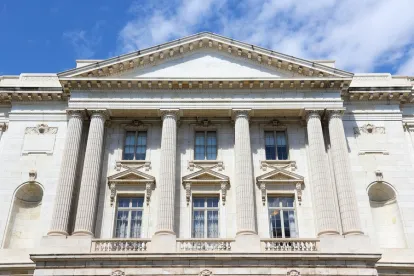Section 337 of the Tariff Act of 1930, 19 U.S.C. § 1337 (“Section 337”), gives the U.S. International Trade Commission (“ITC”) broad powers to investigate and address unfair acts and unfair competition in the importation of articles into the United States. Most Section 337 investigations address issues of infringement of statutory intellectual property such as patents, trademarks, and copyrights. Recently, however, Section 337 has increasingly been used to address other unfair acts such as misappropriation of trade secrets, false advertising, breach of contract, and antitrust violations. One primary advantage of the ITC over other fora is the ITC’s ability to issue Exclusion Orders – powerful remedies that are enforced by U.S. Customs and Border Protection (“CBP”) to prevent the importation of offending products into the United States.
In a Senate Finance Committee hearing last week, Senator John Cornyn (R-Texas) suggested expanding the ITC’s jurisdiction under Section 337 even further. Senator Cornyn noted that he is exploring the possibility of creating authority for a national security exclusion order under Section 337 that would block the importation of goods obtained through trade secret theft by foreign governments or state-owned enterprises. While Senator Cornyn did not provide specific details on this concept, it was suggested during the hearing that the authority would allow the ITC to act more quickly to block imports, presumably before it completes a full investigation. Senator Cornyn’s comments demonstrate Congress’ faith in the ITC’s adjudicative process and CBP’s ability to enforce exclusion orders issued by the ITC.
There are now three primary bills that seem to be part of the Senate’s effort to pass comprehensive legislation related to trade with China: (1) the Strategic Competition Act (S.1169), which was approved last week by the Senate Foreign Relations Committee; (2) the Endless Frontier Act (S. 1260), which was introduced last week and referred to the Senate Commerce Committee; and (3) a yet-to-be-named bill being drafted by the Senate Finance Committee. Senator Cornyn’s proposal would almost certainly fall under the jurisdiction of the Senate Finance Committee, and he will presumably try to include it in that bill.
Strategic Competition Act
Last week, the Senate Foreign Relations Committee voted 21-1 to approve a revised Strategic Competition Act. The bill would, among other things, call for a “diplomatic boycott” of the 2022 Beijing Winter Olympics and expand the types of transactions that the Committee on Foreign Investment in the United States (“CFIUS”) can review. Specifically, it would allow CFIUS to review certain transactions that involve an “institution of higher education” receiving a gift, or contracting with, a “foreign person.” The full committee-approved text has not yet been released.
Endless Frontier Act
Last week, Senate Majority Leader Chuck Schumer (D-New York) and Senator Todd Young (R-Indiana) released the revised text of the Endless Frontier Act for the Senate Commerce Committee to consider. The new bill text can be found here, and a bill summary can be found here. The new version of the bill would authorize $100 billion over five years for the National Science Foundation to support basic research, commercialization, and innovation related to key technology focus areas. It would also authorize $10 billion for the Department of Commerce to invest in regions throughout the country to lead in technology and innovation, including by designating 10 regional technology hubs.
Senate Finance Committee Legislation
During a hearing last week, Senate Finance Committee Chairman Ron Wyden (D-Oregon) announced that he was working with Ranking Member Mike Crapo (R-Idaho) on a China-focused bill to also be considered as part of the overall Senate effort. Wyden said that the Finance Committee bill would focus on “Cracking down on the use of forced labor. Fighting censorship. Protecting US jobs by rooting out counterfeits. Shoring up supply chains, including semiconductors and medical products. Stepping up trade enforcement and oversight.”
Throughout the hearing, committee members discussed other proposals they hope to include in the Finance Committee bill, including Senator Cornyn and his ideas to reform Section 337.
While the details of how the Senate will proceed on the broader China bill remain unclear, the Finance Committee proposal will presumably be combined with or otherwise considered with the Strategic Competition Act and the Endless Frontier Act.
Although there is no guarantee that this legislation will pass, in its current form or otherwise, practitioners should pay attention to ongoing developments in Congress’ efforts to combat trade secret theft and other illicit activities by foreign governments or state-owned enterprises. Moreover, the Commission and members of the ITC bar should take note of Congress’ confidence in the ITC’s adjudicative process.





 />i
/>i

